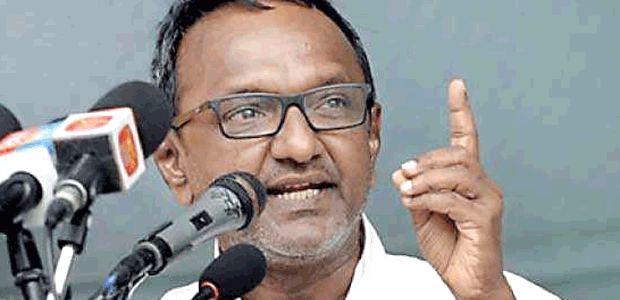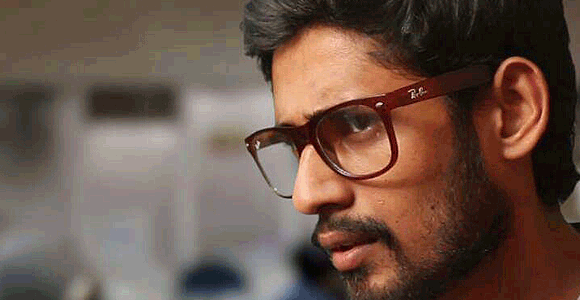
In Conversation with Imtiaz Bakeer Markar Religion Shouldn’t be Manipulated to Further One’s Gain
SRILAL SENEVIRATHNA
Imtiaz Bakeer Markar is a former Minister and Chairman of the Foundation for National Unity. . This is The Catamaran’s dialogue with him on ethnic reconciliation.
Imtiaz Bakeer Markar is a former Minister and Chairman of the Foundation for National Unity. He is a symbol of Sinhala and Muslim friendship and brotherhood. He represents one of the two main political currents of the island. This is The Catamaran’s dialogue with him on ethnic reconciliation.
THE CATAMARAN – Some Muslim politicians representing the Eastern Province were among those who were accused of having links with the Easter Sunday terrorists. What is your view on this?
The Organization of Islamic Countries have 16 ambassadors in Sri Lanka. I met Rev. Malcom Ranjith with them after the Easter Sunday attacks. We expressed the sorrow and sympathy of the Muslims to the Cardinal.
THE CATAMARAN – Are you able to accept what happened as a terrorist attack?
Who committed the genocide of Jews during World War II? Who killed millions of people who were escorted along the sea? Such acts were performed by Christian countries. However, no one calls it Christian extremism. But this is called Islamic extremism. Why is that?
THE CATAMARAN – Who do you think is responsible for this attack?
While I cannot deliver a judgment, I agree with our Cardinal. We must not accept the narrow conclusions of media. We have to consider the international situation. Look at the countries that created conflict and the people behind them. Also, look at countries where terrorism has erupted.
THE CATAMARAN – Muslims were represented by mainstream political parties for a long time. But now they have formed political parties and are even contesting the Presidential elections separately. Why were Muslims prompted to such measures?
We know how Sinhala was the only official language and the ‘Sri’ letter crisis in motor vehicle numbering. After five decades, we have made both Sinhala and Tamil the official languages. How many lives and how much property did we lose before these decisions were made?
In 1966, when the Tamil Language Special Provisions Act was brought to grant language rights, and when district development councils were introduced to hand over the district governance to the people of those districts by Dudley Senanayake, opposition worked against it and several persons lost their lives in chaos.
Later, when Provincial Councils were established, late socialist leader Colvin R. de Silva said in 1956 that one language meant two states whilst two languages meant one state. The same Lanka Samasamaja Party that was represented by Colvin later demonstrated against the Tamil Language Special Provisions Act. People died. They did the same against the district development councils.
THE CATAMARAN – Why were Muslim leaders compelled to create a separate political path on ethnic and religious lines?
When colonial rulers stated that dominion could be granted only if we had united, certain minority community leaders set forth the condition of 50% representation for the minorities to support dominion state. At that moment, Mr. Jayah stated that the Muslims of this country would unanimously and unconditionally support the independence. He stated that even though Muslims had problems we would discuss them with the Sinhalese elders after the independence. How did we lose that tremendous unity we had among us? National political parties must perform their duty properly. Socialist parties also failed to perform their duty in instances like when the Tamil Language Special Provisions Act was brought. Such political manipulations caused severe impact later.
THE CATAMARAN – The Sinhala Buddhist community is worried that Muslims will dominate the Sri Lankan polity in the future. What is your view on this?
Political arguments like 10% Muslims will behave like this, 25% like this and 30% like this are not limited to Sri Lanka. They are parts of international Islamaphobic campaigns. Similar arguments can be heard in Philippines, Thailand, Myanmar and India. The aim of such campaigns is to create conflict among communities.
THE CATAMARAN – Muslim clerics are accused of promoting Burqa and Niqab among women. They were further accused of spreading Wahabism among people. What is your view on this?
When we attended Sinhala village schools as kids, our girls wore the Sinhala children’s saree or Kandyan saree. They wore clothes covering their knees. Later, the fashion became miniskirts, but we still respect the values of our culture. We must be able to accept other cultures, that is democracy. Unity across diversity is the path for reconciliation. Nuns in the past covered their heads up to eye level. Did anyone question it? We respect cultural values. We have qualities. In the past, Westerners said that multi-culturalism was the democracy. Now they ask us to absorb their culture. They attack the Latin Americans, Hindus, Sikhs and other Muslims. This is the rise of ultra-rightist politics.
THE CATAMARAN – What message can you give the Sinhala community about reconciliation?
I don’t have any such message. We live in villages in unity without Sinhala, Tamil and Muslim divisions. I live in Beruwala. The village behind my house is Mandalawatta. It is a Catholic village. Bondaragoda is a Buddhist village. We live as true brothers.
THE CATAMARAN – How can we face the present challenge as a society?
We have to consider it according to our religious values. We must remember that all of us are human. All of us must unite to build a meritocratic society. Manipulating race, caste and religion for personal benefit is not good
This article was originally published on the catamaran.com








